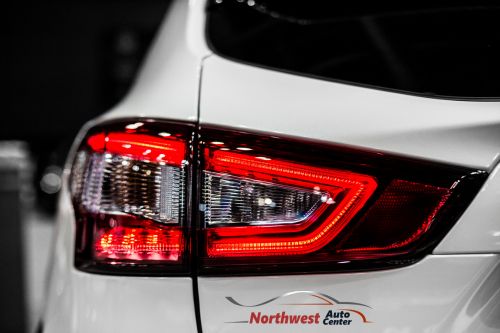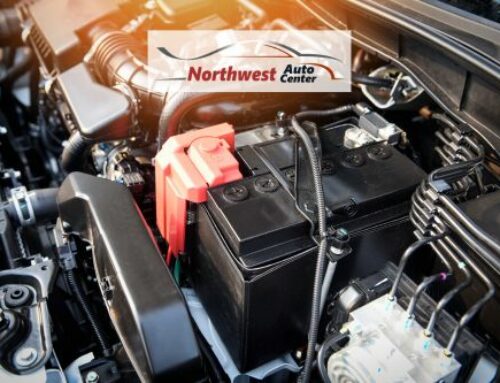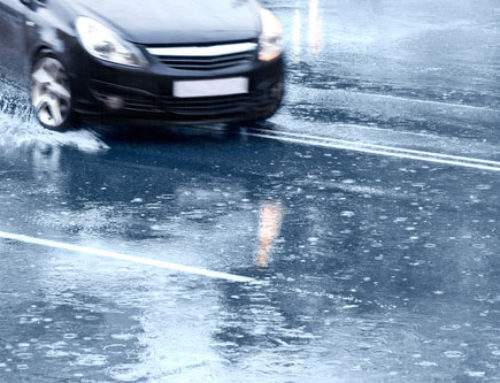When it comes to vehicle safety, drivers often focus on engine maintenance, tire health and brake performance. However, one crucial aspect that is frequently overlooked is the condition of your car’s lights. Headlights, taillights, brake lights and turn signals are essential for safety. Properly functioning lights not only ensure your visibility on the road but also help other drivers to see you, particularly during low-light conditions, bad weather or nighttime driving.

Why Maintaining Car Lights Is Essential
Your car lights are your primary means of communication with other drivers. They signal your intentions, illuminate the road and alert others to your presence. Failing to check and maintain your car’s lights can lead to several safety issues:
Increased Risk of Accidents
The most obvious danger of malfunctioning lights is a higher risk of accidents. Headlights that are too dim, are foggy or not functioning properly can drastically reduce visibility at night or in poor weather conditions. If your brake lights are out, drivers behind you may not realize you are slowing down, which can lead to rear-end collisions.
Avoiding Traffic Violations and Fines
Driving with faulty lights isn’t just dangerous — it’s illegal. Most states require that all vehicle lights are operational. If a police officer notices a broken taillight or a headlight that is out, you may be pulled over and issued a ticket.
Regularly checking and maintaining your car’s lights can help you avoid these legal issues and the fines that come with them.
Improved Nighttime Driving Visibility
Nighttime driving can already be challenging, but faulty or dim lights make it even more dangerous. Properly maintained headlights help you see the road clearly and spot potential hazards, such as animals, pedestrians or debris.
Additionally, functional taillights and brake lights ensure that drivers behind you can see your vehicle and respond accordingly. Maintaining car lights, especially the headlights, is crucial for safe driving at night.
Enhanced Safety in Adverse Weather Conditions
Rain, fog and snow (the last one, though rare in Texas) can significantly reduce visibility. In these situations, your car’s lights play an even more important role in keeping you safe. Low-beam headlights and fog lights can cut through the haze, while bright taillights ensure that your vehicle is visible to drivers approaching from behind.
Types of Car Lights and Their Importance
Before diving into maintenance tips, let’s look at the different types of car lights and why they are essential:
Headlights: Headlights are crucial for illuminating the road ahead during nighttime or in low-visibility conditions. They help you see obstacles and allow oncoming traffic to see you.
Taillights: Taillights illuminate when your headlights are on, making your vehicle visible from behind. This is especially important at night or during heavy rain.
Brake Lights: Brake lights alert drivers behind you that you are slowing down or stopping. These are essential for preventing rear-end collisions.
Turn Signals: Also known as blinkers, turn signals indicate your intentions to change lanes or make a turn. This helps prevent confusion and potential accidents.
Reverse Lights: These lights come on when your vehicle is in reverse, alerting others that you are backing up.
Fog Lights: Fog lights are designed to improve visibility in foggy conditions, casting a low and wide beam to cut through the mist.
Tips for Regular Maintenance of Car Lights
Perform Regular Light Checks
Make it a habit to inspect all of your car’s lights at least once a month. Park your car in a safe location, turn on the headlights, and check the high and low beams. Walk around the vehicle to ensure that the taillights and brake lights are functioning. Don’t forget to test the turn signals and reverse lights. If you notice any bulbs that are out or dim, replace them immediately.
Clean the Light Lenses
Over time, dirt, grime, and oxidation can build up on the light lenses, reducing their effectiveness. Use a cleaning kit specifically designed for car lights to remove any buildup. For more stubborn oxidation, consider using a headlight restoration kit. Clean lenses will ensure that your lights are as bright as possible.
Replace Bulbs Promptly
If you notice a bulb that is flickering or has gone out, don’t wait to replace it. Driving with a burnt-out light is not only dangerous but also illegal in many areas. When replacing bulbs, consult your vehicle’s owner manual to ensure you purchase the correct type. It’s a good idea to keep spare bulbs in your car in case you need an emergency replacement.
Most modern vehicles will alert you when your blinker bulbs are close to burning out by blinking faster than usual. If you see this, pull into a nearby auto parts store for a new bulb.
Adjust the Headlights
Misaligned headlights can create a serious visibility issue. If your headlights are pointing too high, they can blind oncoming drivers. If they are aimed too low, you may not see far enough ahead. Most vehicles have adjustment screws near the headlight assembly that allow you to fine-tune the alignment. If you’re unsure how to do this, a professional mechanic can help.
Check the Electrical System
Sometimes, issues with your car’s lights are related to electrical problems rather than the bulbs themselves. If you notice multiple lights failing at once, it may be a sign of a blown fuse or a wiring issue.
If you suspect an issue, have it inspected by a professional.
Upgrade to LED or HID Lights
If you frequently drive at night, live in a rural area that is poorly lit or in poor weather conditions, consider upgrading to LED or HID lights. These lights are typically brighter and more energy-efficient than traditional halogen bulbs, providing better illumination and longer-lasting performance.
Keeping Your Car Lights On
Maintaining your car’s lights is a simple yet critical aspect of vehicle safety that should not be overlooked. Incorporate regular light checks into your vehicle maintenance routine, and don’t hesitate to replace faulty bulbs or address electrical issues promptly. After all, your car’s lights are your first line of defense against unforeseen hazards and poor driving conditions.




Leave A Comment
You must be logged in to post a comment.